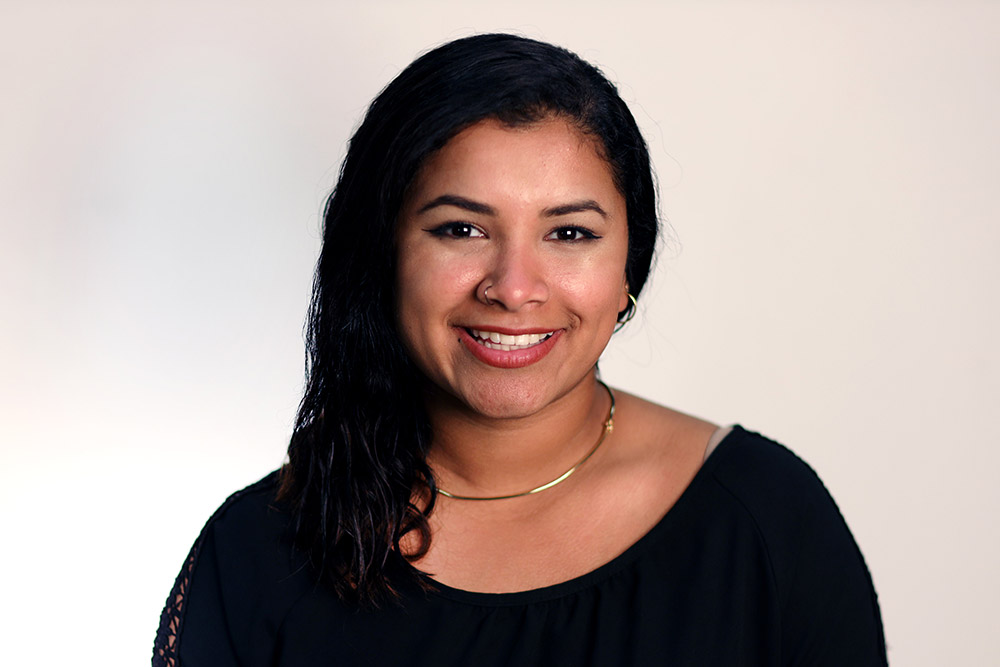Interview with New SG President and Vice President
by Meghan Connor Courtney | published Oct. 23rd, 2019
Anika Aftab, a fifth year Organization Strategy and Healthcare Administration major, was elected Student Government (SG) president for the 2019-20 school year. Similarly, Liam Megraw, a fourth year Environmental Science major, was elected vice president.
Both students have previous experience in SG. Aftab previously held the 2018-19 School of Individualized Study (SOIS) Senator position, and Megraw held the position of SG Sustainability Chairperson. They built their campaign on three pillars of flexible education through SOIS, 360 Wellness and sustainability. Through these three pillars, they hope to improve the quality of student life on campus.
Flexible Education
SOIS allows students to create their own major by focusing on their own passions and adapts education to the individual. Within SOIS, students have an academic adviser who helps them create a course curriculum that supports their goals. Aftab highly advocates for the program because of how it helps students develop their selves. Having both studied and worked abroad, Aftab stated that the way SOIS operates is how a majority of colleges operate internationally. Part of their goal in furthering SOIS is introducing a minor system that any student would be able to participate in.
Ideally, the minor system would operate in such a way that students would find something they are passionate about and choose five courses that support their passion. For example, if someone is interested in the music industry, they would have the opportunity to have a minor wherein students could take both music and business courses in order to learn more about it.
“I’ve presented this to Dr. Munson,” said Aftab. “The ability for students not to have such a rigid coursework so they are allowed to have experiential learning, because really the future of our education is being able to adapt to your surroundings.”
The minor system currently in place at RIT is difficult for many students to navigate. In STEM courses specifically, classes are rigidly structured around requirements and co-ops such that opportunities to study abroad are limited to only one or two semesters. Many students studying abroad for minors have limited opportunities because of the courses offered by schools abroad. By having a minor option that allows for this type of flexibility, RIT students would be able to broaden their horizons both through study abroad and experiential learning of different cultures in different parts of the world.
“The idea is to help broaden and strengthen our global partnerships,” Megraw adds. “The ability of students to create their own minor isn’t just about flexibility. By creating their own courses, students are able to broaden their horizons. Studying abroad is a common goal for many students. While study abroad programs have very specific classes, a course offered as part of SOIS may be easier to structure around being abroad.”
360 Wellness
The second pillar of their campaign is 360 Wellness. Students are often pushed to their limits as they study for their classes; although it is rarely acknowledged, this does take a major toll. 360 Wellness is part of a push by SG to take a step back and help students proactively work on several common issues before they become a major problem.
The main focus of 360 Wellness is on physical, mental, financial and spiritual health. This initiative offers workshops tailored to each specific focus that would be available for any student to attend to improve themselves. This would include a proactive focus on mental health that encourages coping skills, resources for students to explore their beliefs through spiritual education and a focus on developing students’ finance skills.
“We are expected to be adults when we get in and adults when we get out [of college],” says Aftab. “Why aren’t we learning the skills needed to be adults in between?”
Sustainability
Megraw is aware of the student impact on the environment, and a large part of the duo’s campaign revolves around making RIT a more environmentally friendly campus. Megraw was part of the group helping integrate the use of Ozzi Boxes and biodegradable takeout containers instead of plastic containers. He has also participated in Waste Awareness Day, where all the garbage produced by the school is laid out for all to see next to the Gordon Field House.
“I care about people and the planet; that’s what sustainability is about,” said Megraw.
Making sure the needs of students are met is part of their role in sustainability on campus, according to Megraw. Megraw highlighted that there are several organizations on campus that help to bridge the gap for students whose needs aren’t being met. Foodshare is a no-questions-asked food pantry on campus where students in need can go and pick up five items worth of food per day. He also mentioned the clothing donation center and the emergency fund which offers housing and medical and food supplies for students in need.
Changes in SG
Both Megraw and Aftab acknowledge there is a disconnect between SG and the students themselves. Some of the solutions proposed require an increased involvement with New Student Organization to make first year students more aware of SG. Another is to form town halls based around specific topics where administrators, specialists and students would all gather to ask and answer questions around topics relevant to RIT students in an effort to increase communication between these groups.
Megraw stated that PawPrints is the RIT petition software students can use to make their concerns known, and that if someone is truly passionate about an issue ongoing at RIT, they can make a petition. Any petition that gains over 200 signatures will guarantee a response from SG.
He also highlights Project Spirit. Any club can register one of their events each semester for 10 points for attending students, and every Friday is Spirit Friday where wearing RIT merchandise will receive five points if they check in at the SG office.
“It encourages students to come to all of these events to truly experience all RIT has to offer,” states Megraw.
Aftab and Megraw are aware that they have a large scope of topics under their belt, but their purpose isn’t necessarily to complete all their goals. Part of their job is to start the projects that are important for the upcoming generation of SG. Overall, their goals are ambitious, but both are dedicated to fulfilling the promises of their campaign.





